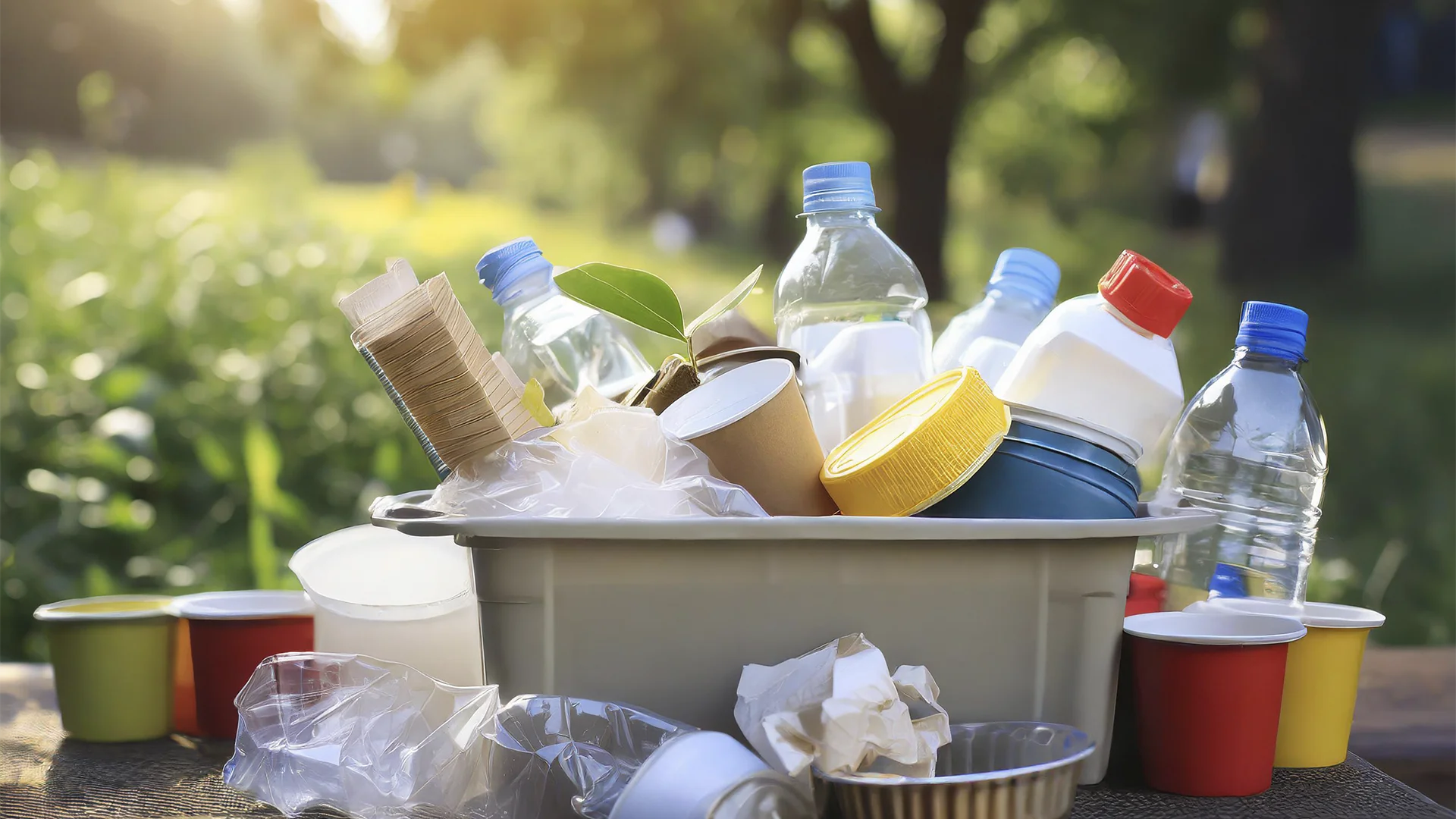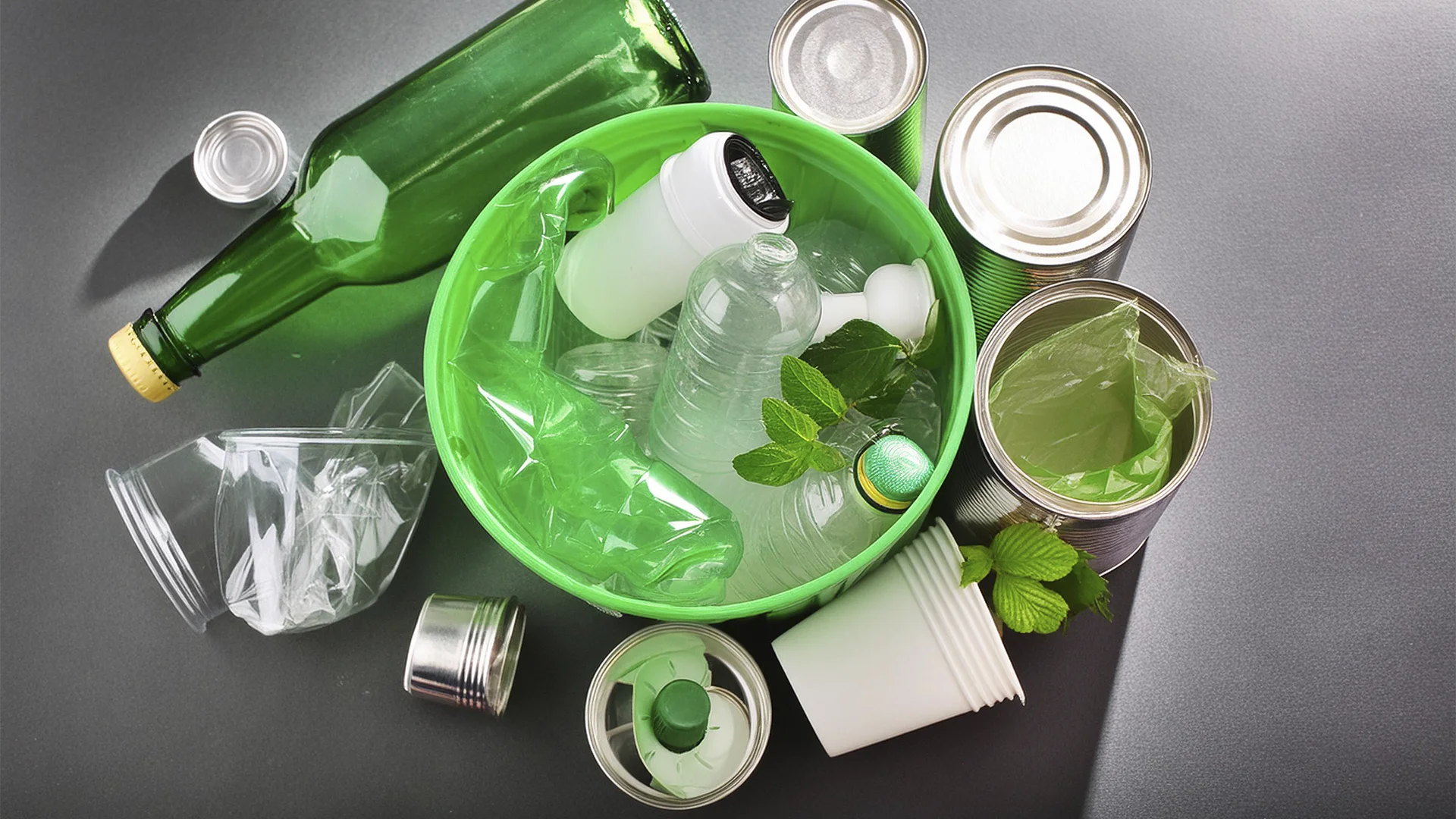In an era where environmental sustainability has become a paramount concern, understanding the intricacies of waste management, particularly the distinction between recyclable vs non recyclable items, is essential. At Octoen, we are dedicated to not only providing solutions for waste transformation but also to educating our audience on the importance of recycle practices and the challenges posed by non recyclable items. We aim to highlight the types of non recyclable waste and how we can collectively work towards more sustainable waste management practices. Recycling involves collecting and processing materials that would otherwise be thrown away as trash and turning them into new products. This practice conserves resources and reduces the need for non recyclable plastics and other materials, minimizes pollution, and saves energy. Understanding what can and cannot be recycled can significantly contribute to environmental protection.
You may be interested in: What is Environmental Pollution
Which Wastes Can Be Recycled?
Many materials can undergo the recycle process, including paper, cardboard, certain plastics, glass, aluminum, and metals. When properly sorted and processed, these items can be transformed into new products, reducing the demand for virgin materials and the amount of non recyclable waste in our environment.
Non-Recyclable Wastes
Despite advancements in recycle technology, certain non recyclable items persist, posing challenges for waste management. Identifying these materials and understanding why they cannot be recycled is crucial in our efforts to minimize non recyclable waste.
You may be interested in: What is Recycling
Packaging Papers
Packaging papers, particularly those coated with plastic or wax, are often non recyclable items. These materials are difficult to process due to their composite nature, which complicates the separation of recyclable vs non recyclable components. The presence of coatings means that these papers cannot easily be recycled in the same manner as regular paper, leading to their classification as non recyclable items. Innovation in packaging design is crucial to address this issue. Developing fully recycleable or biodegradable materials can significantly reduce the amount of non recyclable waste, aligning with the global push towards sustainability.
Medical Wastes
Medical wastes, including syringes, gloves, and masks, are classified as non recyclable waste due to the potential biohazards they pose. Safe disposal methods are essential for these materials to prevent environmental contamination and health risks. These non recyclable items require specialized handling and treatment processes to mitigate their impact on public health and the environment. Developing and implementing advanced disposal and treatment technologies is crucial to ensure that these non recyclable items do not undermine our recycle efforts or contribute to the pollution of our planet.
Takeout Products
Many takeout products, such as plastic food containers and cutlery, are made from non recyclable plastics. Their composition and contamination with food residues make them unsuitable for the recycle process. These non recyclable items pose a significant challenge in waste management due to their widespread use and disposability. A shift towards biodegradable or recyclable alternatives is essential to combat this issue. Encouraging restaurants and consumers to opt for greener options can drastically reduce the amount of non recyclable waste generated.
Various Glasses
Not all glass is created equal in the recycle world. Items like mirrors, window panes, and certain types of drinkware are considered non recyclable items due to their chemical composition and treatment, which renders them incompatible with standard glass recycle processing. These glasses undergo treatments that strengthen them or add certain features, such as tinting or reflective coatings, making them difficult to melt down and reform without compromising the quality of new glass products. Research into alternative recycling methods or the development of new recycling technologies is crucial to address this challenge.
Styrofoam Products
Styrofoam products are among the most notorious non recyclable waste materials. Their lightweight and low cost make them popular for packaging, but their chemical structure could be more conducive to the recycle process, leading to significant environmental pollution.
Transform Your Waste with Octoen Compost Machines
In the face of challenges presented by non recyclable items, Octoen offers innovative solutions to transform waste into resources. Our compost machines are designed to tackle organic waste, turning it into compost that can enrich soil and support sustainable agriculture. By focusing on the recycle of organics, we can significantly reduce the volume of non recyclable waste, making strides towards a more sustainable and environmentally friendly waste management system.
While the journey towards zero waste is complex, especially when navigating the recyclable vs non recyclable landscape, every step towards understanding and improving our recycling practices is a step towards a healthier planet. By being mindful of non recyclable items and seeking alternatives, such as Octoen’s composting solutions, we can all contribute to reducing our environmental footprint.
 TR Octoen
TR Octoen
 USA Octoen
USA Octoen
 ES Octoen
ES Octoen


